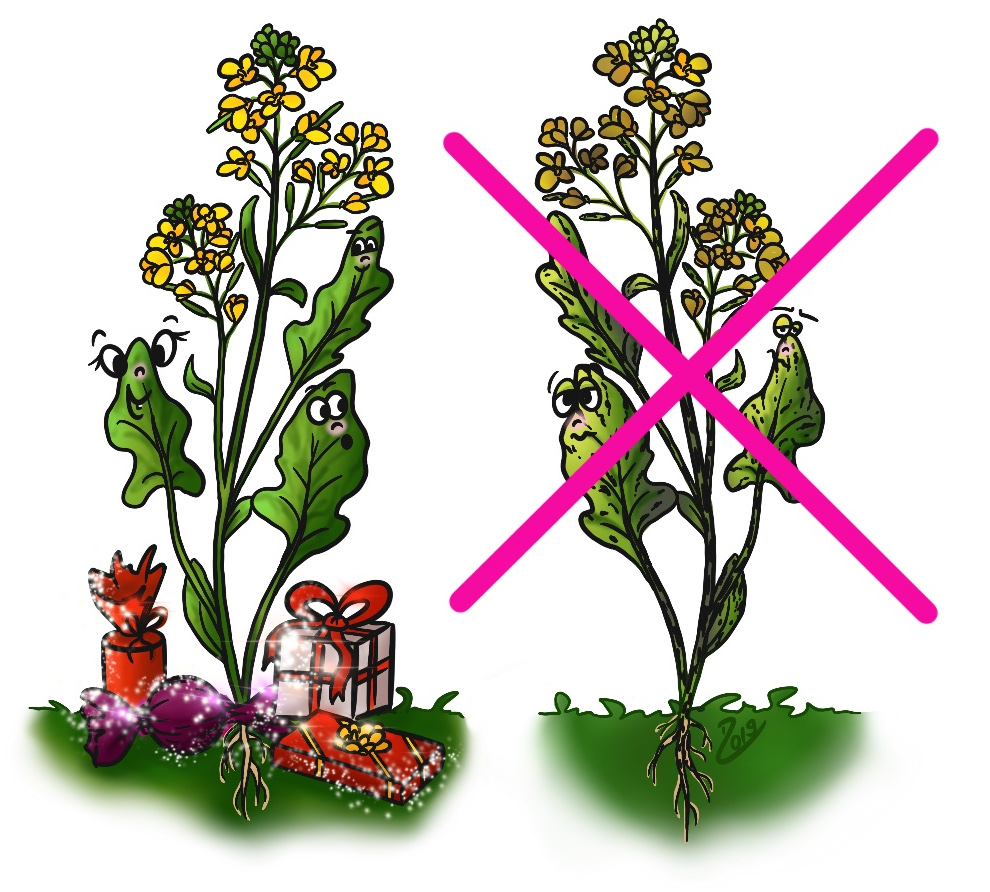10
back


Crop: Rapeseed (Brassica napus)
Property: Increased resistance to stem rot (S. Sclerotiorum)
Sclerotinia sclerotiorum, also known as rape cancer, stem rot or white rot, is a fungal disease that occurs in many crops such as rape, sunflower, potato, legumes or cabbage. The fungus causes the greatest damage in years with warm, early summers and high humidity. In rapeseed, disease signs manifest as white to greyish spots on stems or side shoots after flowering. A white, felt-like fungal tissue then develops, which overgrows the stem and leads to stem rot. In rapeseed, this can lead to yield losses of 5 to 100 % depending on the severity of the infestation. Chinese scientists at Yangzhou University successfully eliminated a gene in rapeseed with CRISPR/Cas and thus lowered the plant's susceptibility to S. sclerotiorum. The mutated plants showed an increased resistance compared to the parent plant.
Publication
| Title | CRISPR/Cas9-Mediated Multiplex Genome Editing of the BnWRKY11 and BnWRKY70 Genes in Brassica napus L. |  |
| Authors | Qinfu Sun et al. | |
| Country | China | |
| Journal | International Journal of Molecular Sciences | |
| Year | 2018 | |
| DOI | doi:10.3390/ijms19092716 |
